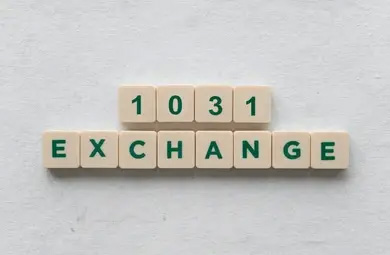What Is a 1031 Exchange and How Does It Work?
Whether investing in the stock market, real property, or buying gold, there is a continual challenge of when and how to invest because of current world events and economic fluctuations. Buying and selling real estate can usually weather many changes. Although short-term turnovers in real estate can be profitable, investors typically realize large gains over longer periods. The general purpose for holding the property is to have tax benefits while gaining appreciation.
Sometimes, real property tax benefits decrease over the years, or the equity is significant enough to reinvest in another or multiple properties. Then, the 1031 exchange becomes an invaluable tool for investors who want to trade or increase their portfolio.
The primary reason for using this particular tool is that it can be an excellent way to "postpone" capital gains taxes on your real estate investments. However, there are definite rules for using a 1031 exchange during the buying and selling of real property, and you must follow them to qualify for this type of transaction. Here are some of the basic guidelines.
You can only use a 1031 exchange for investment properties or properties owned for use in business (you can't use a personal residence). You cannot use them for your residence or second home unless you only use the property for rental to third parties.
All exchanges must be located in the United States.
You must exchange between like-kind properties. Both properties must be for investment or business purposes, but they do not have to have an exact use. For example, you can exchange an apartment building for a commercial shopping center.
To meet Internal Revenue Service (IRS) guidelines for an exchange, you must identify the replacement property for the one you are exchanging within 45 days of the initial property transfer date. You can specify up to three properties of like value or as many properties as necessary to total the fair market value of your exchanging property. There is more to the IRS specifications than can be detailed in this article, so be sure to consult an expert in exchange.
You must close escrow on the replacement property within 180 days from the initial transfer date of your property to the other party. However, IRS regulations now let you buy the replacement property first - a "reverse exchange."
If the exchange is not simultaneous, you must use a qualified intermediary, such as a bank, attorney, etc. Beware - the Internal Revenue Code describes who cannot be a qualified intermediary – so be careful who you select, and again, consult a professional on exchanges.
If you end up with cash to balance out the value of the two properties, the money is taxable at current capital-gains rates; this is often termed as "boot."
If the property you receive in exchange is from a relative and you then sell the property within two years, the original exchange will not qualify for deferred capital gains.
Exchanges are complicated, and this article only outlines some of the significant points of a 1031 exchange. Use professionals who know the requirements, as well as the pitfalls, for this type of transaction. The exchange is a great tool, but if not followed correctly, the IRS could deny the exchange, causing severe tax consequences. In addition, before considering a 1031 Exchange, consult your tax advisor to see if this will benefit your investments and taxes.
The 1031 exchange may be the tool for you. Call the property management team at Centurion if you have questions on the 1031 exchange; we will gladly assist you!


